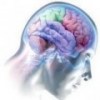An article in last week's Nature describes a highly experimental - but also highly promising - new treatment for patients who have undergone massive traumatic brain injury.
These patients are typically left in a "minimally conscious" state, showing little to no responsiveness to verbal commands, and little capacity to interact socially.
Schiff and colleagues identified one such patient who, despite having been in this state for nearly 4 years, nonetheless showed largely intact large-scale cerebral networks for processing language (as identified through functional neuroimaging). The authors then set about implanting electrodes in this patient's thalamus, a region of the brain which they believed might be understimulated due to the effects of traumatic brain injury.
48 hours after surgery, they began stimulating the patient. Nearly immediately the patient began to show signs of "social gestures" in object naming tasks, though speech remained unintelligible. After another 100 or so days of stimulation, the patient began to produce intelligible speech, to chew and swallow on his own, and was able to manipulate objects on his own.
The authors warn that not every minimally-conscious patient is lucky enough to have so much of their neocortex survive 4 years of minimal consciousness, and that the potential for the technique is unknown.
